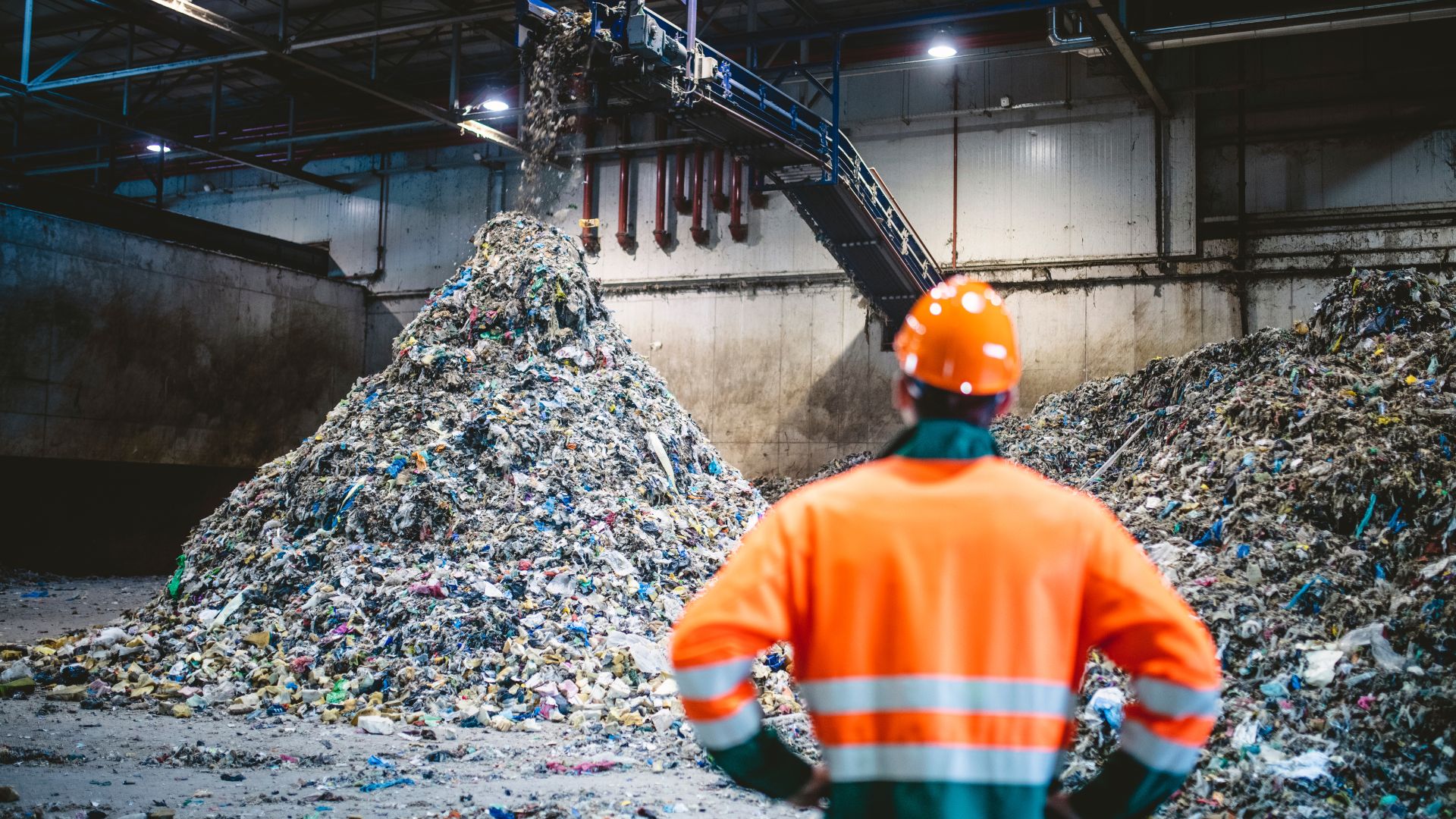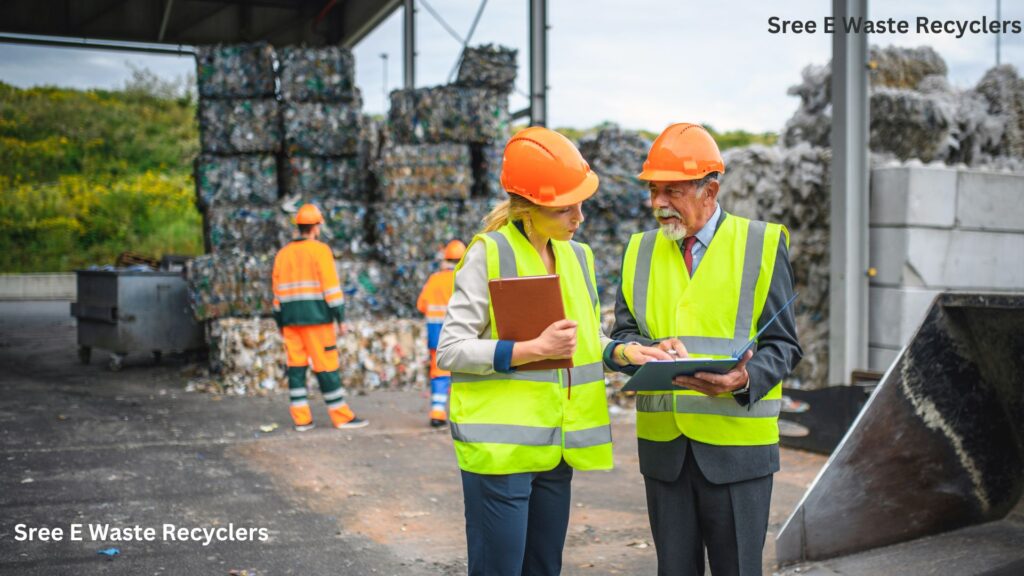
E-Waste Management in India: A Path to a Greener Future
Electronic waste, or e-waste, is created when electronic devices are no longer useful or have expired. With the rapid advancement of technology and the release of new models, old devices are quickly replaced, leading to a huge increase in e-waste in India. People often switch to the latest gadgets, and products don’t last as long as they used to, making the problem worse. This situation poses significant challenges for managing e-waste in India.
Consumers play a key role in improving e-waste management. Programs like Extended Producer Responsibility (EPR), eco-friendly product design, and the 3Rs (Reduce, Reuse, Recycle) aim to encourage people to dispose of e-waste properly, increase recycling and reuse rates, and adopt more sustainable habits.
Unlike many developed countries that prioritize e-waste management, developing countries like India face different issues. Simply copying e-waste management practices from developed countries doesn’t always work well. Problems such as lack of investment, not enough skilled workers, poor infrastructure, and weak laws specifically for e-waste make the situation harder. Additionally, there is often confusion about who is responsible for what in e-waste management, which further complicates the efforts to tackle this issue effectively.

What is E-Waste Management?
E-waste management in India involves the systematic handling of discarded electronic and electrical devices to minimize environmental impact and promote resource recovery. This process includes several stages: collection, transportation, recycling, and safe disposal. E-waste is collected from households and businesses through formal collection centers and informal sector workers, then transported to recycling facilities where valuable materials like metals and plastics are extracted for reuse. Safe disposal practices are crucial to prevent environmental contamination from hazardous substances found in many electronic devices.
Consumers play a crucial role in effective e-waste management by responsibly disposing of their electronic devices at authorized centers. The Indian government has implemented regulations such as the E-Waste (Management) Rules to assign responsibilities to producers, consumers, and recyclers, promoting environmentally sound practices. Despite these efforts, challenges remain, including the dominance of the informal sector, low public awareness, inadequate infrastructure, and weak enforcement of regulations. Addressing these issues requires a coordinated effort from the government, industry, and consumers, alongside innovative solutions like promoting the circular economy and enhancing recycling capabilities.
E-Waste Management in India: Issues and Solutions
Electronic waste, or e-waste, is produced when electronic or electrical devices are no longer usable or have reached the end of their lifespan. Rapid technological advancements and the constant release of new electronic devices have led to old models being quickly discarded, causing a significant rise in e-waste in India. People frequently upgrade to the latest technology, and product lifespans are getting shorter, adding to the problem. Consequently, India faces substantial challenges in managing e-waste effectively.
Consumers play a crucial role in improving e-waste management in India. Programs like Extended Producer Responsibility (EPR), eco-friendly product design, and the 3Rs (Reduce, Reuse, Recycle) are designed to promote proper disposal of e-waste, enhance recycling and reuse rates, and encourage sustainable consumer habits. These initiatives aim to create a circular economy by connecting markets and facilitating better e-waste handling.
In developed countries, e-waste management is a high priority. However, developing countries like India struggle with different issues. Simply copying e-waste management practices from developed countries doesn’t always work due to a lack of investment, insufficient skilled labor, poor infrastructure, and weak laws specifically addressing e-waste. Additionally, there’s often confusion about the roles and responsibilities of various stakeholders and institutions involved in e-waste management. To address these challenges, India needs to develop tailored solutions that consider its unique circumstances and leverage local resources and expertise.
Challenges for E-waste Management in India
E-waste management in India is fraught with numerous challenges, which need to be addressed to create a sustainable and effective system. Key challenges include:
- Dominance of the Informal Sector: A significant portion of e-waste recycling is handled by the informal sector. These recyclers often use unsafe methods to extract valuable materials, leading to environmental pollution and health risks.
- Lack of Public Awareness: Many consumers are unaware of the harmful effects of improper e-waste disposal and the availability of proper recycling methods. This lack of awareness leads to e-waste ending up in landfills or being improperly dismantled.
- Inadequate Infrastructure: India lacks sufficient recycling facilities and the necessary infrastructure to manage the increasing volume of e-waste. This shortfall hampers the efficient processing and safe disposal of e-waste.
- Weak Regulatory Enforcement: Although there are e-waste management laws in place, their enforcement is often weak. This results in ineffective management and monitoring of e-waste disposal and recycling practices.
- Confusion About Roles and Responsibilities: There is often a lack of clarity regarding the roles and responsibilities of various stakeholders, including producers, consumers, and government agencies. This confusion hinders coordinated efforts to manage e-waste effectively.
- Insufficient Investment: The sector suffers from a lack of investment, which is necessary for developing robust recycling facilities, advanced technologies, and proper waste management infrastructure.
- Technical Skill Shortage: There is a shortage of technically skilled human resources required to handle and recycle e-waste safely and efficiently.
Addressing these challenges requires a multi-faceted approach, including strengthening regulatory frameworks, enhancing public awareness, investing in infrastructure and technology, and fostering collaboration among stakeholders to create a more sustainable e-waste management system in India.
Strategies for India to Improve E-Waste Reduction and Recycling
- Certification and Standardization: Introduce a certification program for e-waste collection centers and recyclers, ensuring adherence to safety and environmental standards. By standardizing processes and facilities, it promotes trust among consumers and streamlines the recycling chain.
- Manufacturer Responsibility Programs: Enforce mandatory programs where electronics manufacturers are accountable for the end-of-life disposal of their products. This encourages manufacturers to design products with longevity in mind and invest in sustainable materials, ultimately reducing e-waste generation.
- Community E-Waste Hubs: Establish community-based e-waste hubs in urban and rural areas, offering convenient drop-off points for electronic devices. These hubs can serve as educational centers, providing resources on responsible disposal practices and hosting repair workshops to extend the lifespan of electronics.
- Incentive-based Recycling Initiatives: Launch incentive programs that reward individuals for recycling their e-waste. This could include discounts on future purchases, loyalty points, or vouchers for local businesses. By incentivizing recycling, it encourages participation and fosters a culture of sustainability.
- E-Waste Education in Schools: Integrate e-waste education into school curriculums, teaching students about the environmental impact of electronic waste and the importance of recycling. Hands-on activities and projects can engage students and empower them to become advocates for responsible e-waste management in their communities.
- Public-Private Partnerships for Recycling Infrastructure: Foster partnerships between government agencies and private companies to invest in recycling infrastructure and technology. By pooling resources and expertise, these partnerships can accelerate the development of innovative recycling solutions and expand recycling capacity nationwide.
- E-Waste Awareness Campaigns: Launch multimedia awareness campaigns to educate the public about the significance of e-waste recycling. Utilize social media, television, and community events to raise awareness and promote behavior change towards responsible e-waste disposal.
- Eco-Innovation Challenges: Organize eco-innovation challenges to incentivize entrepreneurs and startups to develop creative solutions for e-waste management. Offer funding, mentorship, and access to resources to support the development and scaling of innovative e-waste recycling technologies and business models.
By implementing these strategies, India can make significant progress towards reducing e-waste generation, promoting responsible recycling practices, and creating a more sustainable electronic waste management system.
In conclusion, as we navigate the complex landscape of e-waste management in India, it’s clear that sustainable solutions are needed to address the growing environmental challenges posed by electronic waste. “Sreeewasterecycling” stands at the forefront of this endeavor, offering comprehensive e-waste recycling services tailored to meet the unique needs of businesses, households, and communities across India.
By partnering with “Sreeewasterecycling,” organizations and individuals can not only fulfill their regulatory obligations but also contribute to environmental sustainability. With a commitment to excellence and innovation, “Sreeewasterecycling” provides state-of-the-art recycling facilities, transparent processes, and a dedicated team of experts to ensure that e-waste is responsibly managed from collection to disposal.
Furthermore, promoting the services of “Sreeewasterecycling” is not just about compliance; it’s about embracing a vision of a greener, more sustainable future for generations to come. By choosing “Sreeewasterecycling,” businesses and individuals demonstrate their commitment to environmental stewardship and corporate social responsibility.
Together, let’s take the next step towards a cleaner, healthier planet by harnessing the expertise and resources of “Sreeewasterecycling” for all our e-waste management needs. Join us in making a positive impact today and for the generations to follow. Choose “Sreeewasterecycling” and make a difference.
